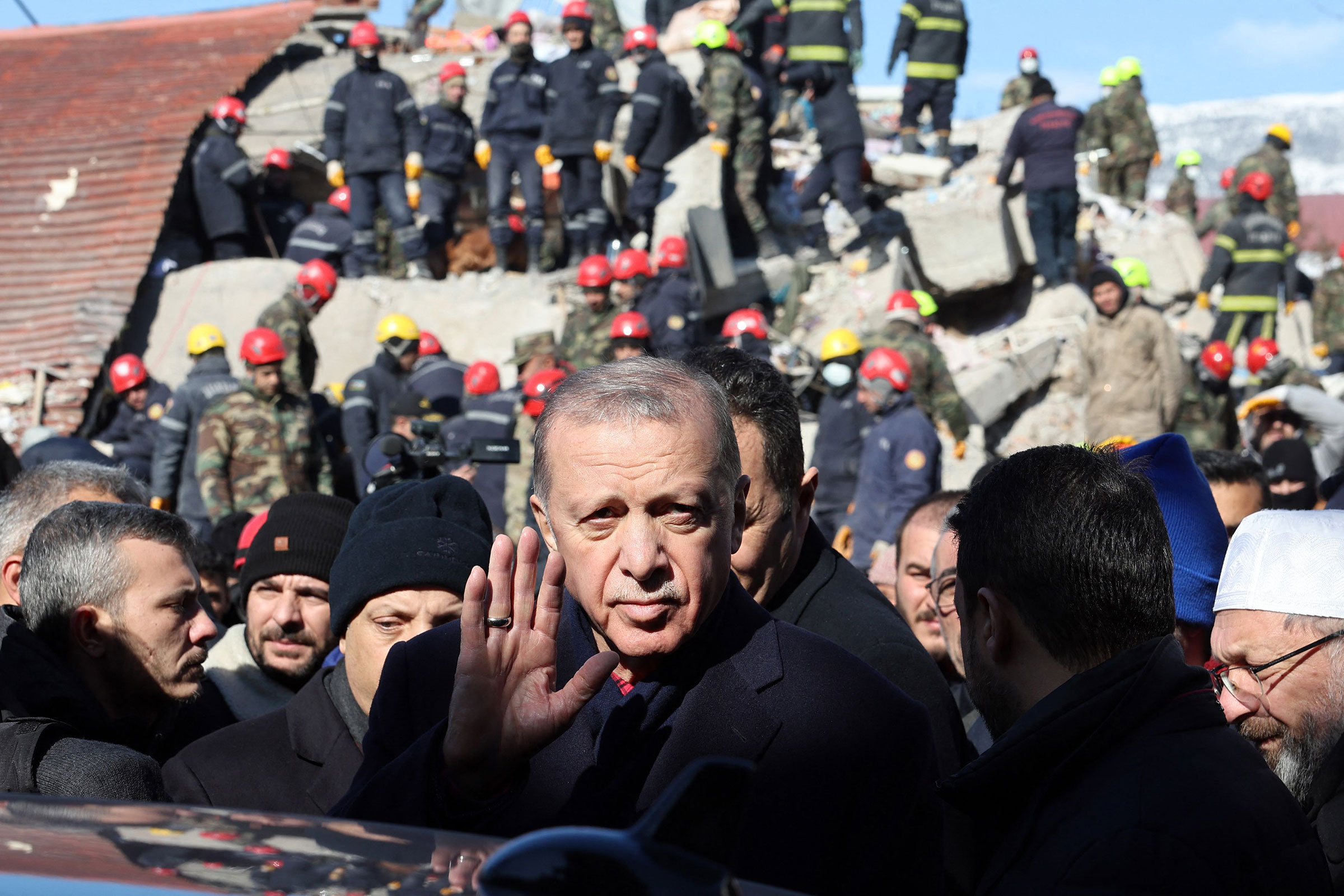
When Ali Nusret Berker started seeing Twitter videos posted by people trapped under the rubble of the two Feb. 6 earthquakes in southern Turkey, they brought to mind the cousin he had lost when a massive earthquake hit his hometown near Istanbul in 1999. An avid cave explorer who just passed an exam to become an ambulance driver, the 33-year-old decided to go straight to the Yalova headquarters of AFAD, Turkey’s Disaster and Emergency Management Authority, where he was a search-and-rescue volunteer.
“I couldn’t sit in my warm home when they were screaming for help,” he tells TIME.
But sit at home is exactly what AFAD told Berker to do. He had to come back the next day to badger officials to send him and other volunteers south on an overnight bus ride to Iskenderun. There, AFAD employees tried to keep Berker and his ad hoc team from going to the hard-hit city of Samandag, he says. But the team caught a lift with a local man and eventually pulled five people out alive with a jackhammer, generator, and bolt cutter, which also had to be provided by residents. At least 800 people have died in the city.
“If we had equipment and if we reached Samandag quicker, we could have easily saved more,” Berker says. “There were so many voices that we couldn’t count. But after hours and hours the voices were going mute.”
As Turkey begins to reckon with a death toll nearing 36,000, competing narratives are being told about the country’s deadliest earthquake ever. Although President Recep Tayyip Erdoğan has admitted “shortcomings,” he claimed that “it’s not possible to be ready for a disaster like this” and called those criticizing the government response “dishonorable.” State prosecutors have opened investigations against journalists and social media users who disagreed with his handling of the crisis.
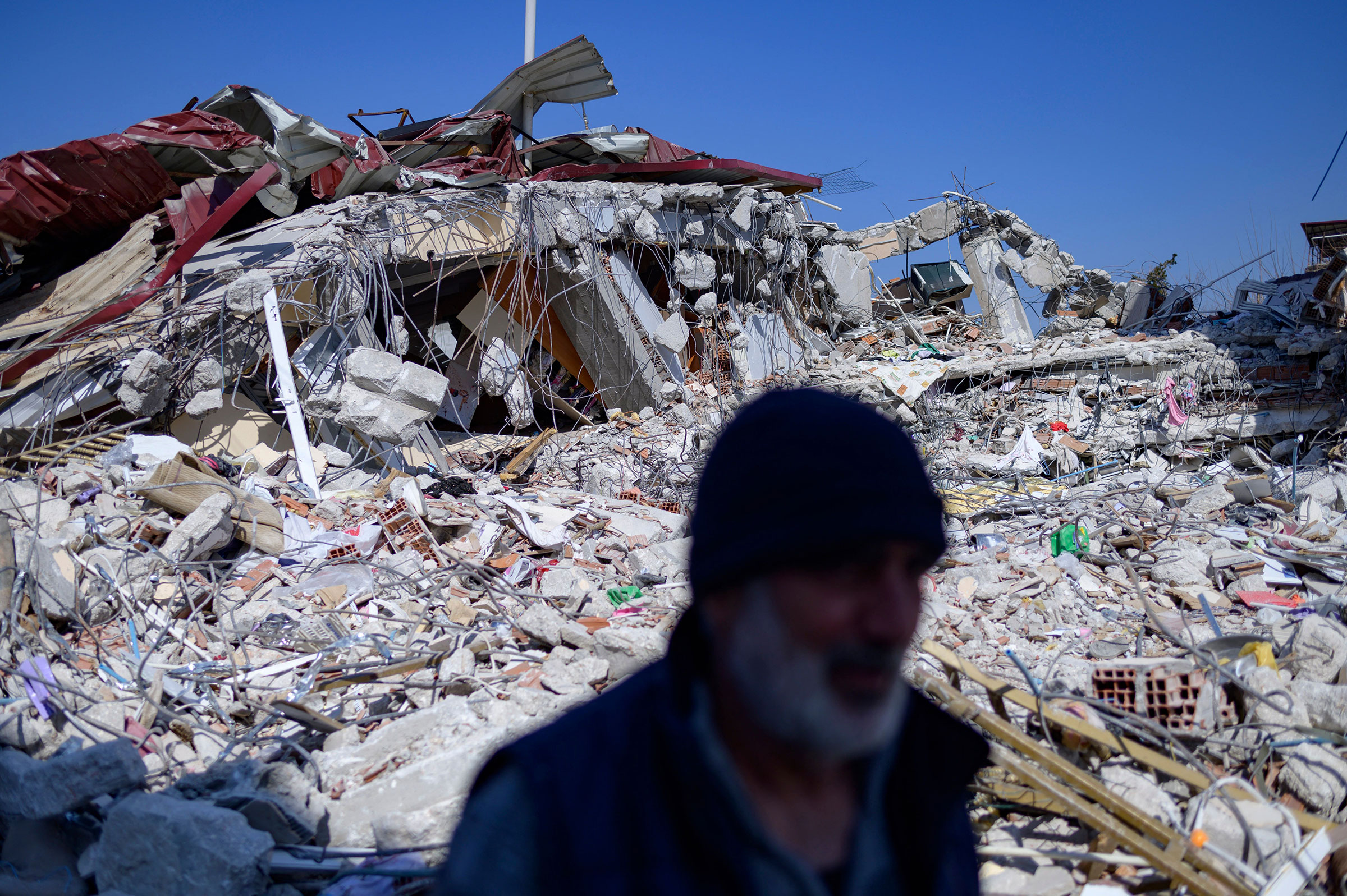
Opposition politicians and other critics have argued that while the twin tremors were unprecedented, the sheer scale of death and destruction points to key missteps. The Turkish government has been supposedly preparing for the next major earthquake ever since it was caught off-guard in the 1999 quake that killed more than 17,000 people, sparking major public anger that helped bring Erdoğan and his conservative Justice and Development Party (AKP) into office for the first time in 2003. Yet accounts like Berker’s depict a state disaster response that was slow, inflexible, and incompetent—and many say the centralization of power by Turkey’s longest-serving and increasingly autocratic leader is to blame.
Which of these two narratives Turkish voters choose to believe could determine Erdoğan’s fate when he stands for re-election in a vote currently planned for May.
“He hollowed out important institutions, he weakened them, he appointed loyalists who do not have the credentials in key positions and he wiped out civil society organizations,” says Gönül Tol, Turkey program director at the Middle East Institute, whose father-in-law in Hatay passed away after waiting more than 24 hours for a crane to lift a concrete slab off his legs. “It’s one-man rule, and he wants us to not talk about it. He wants us to die without complaining.”
More from TIME
The best way to prevent earthquake deaths is to construct resistant buildings. But amid a construction boom that enriched firms close to the ruling AKP, the government failed to enforce its own building codes and sold “zoning amnesties” to owners of existing substandard properties.
In part for these reasons, more than 61,000 buildings were damaged or destroyed last week, including several hospitals. More than 130 contractors are being investigated for collapses, even though inspectors and other experts say officials should probably be implicated as well.
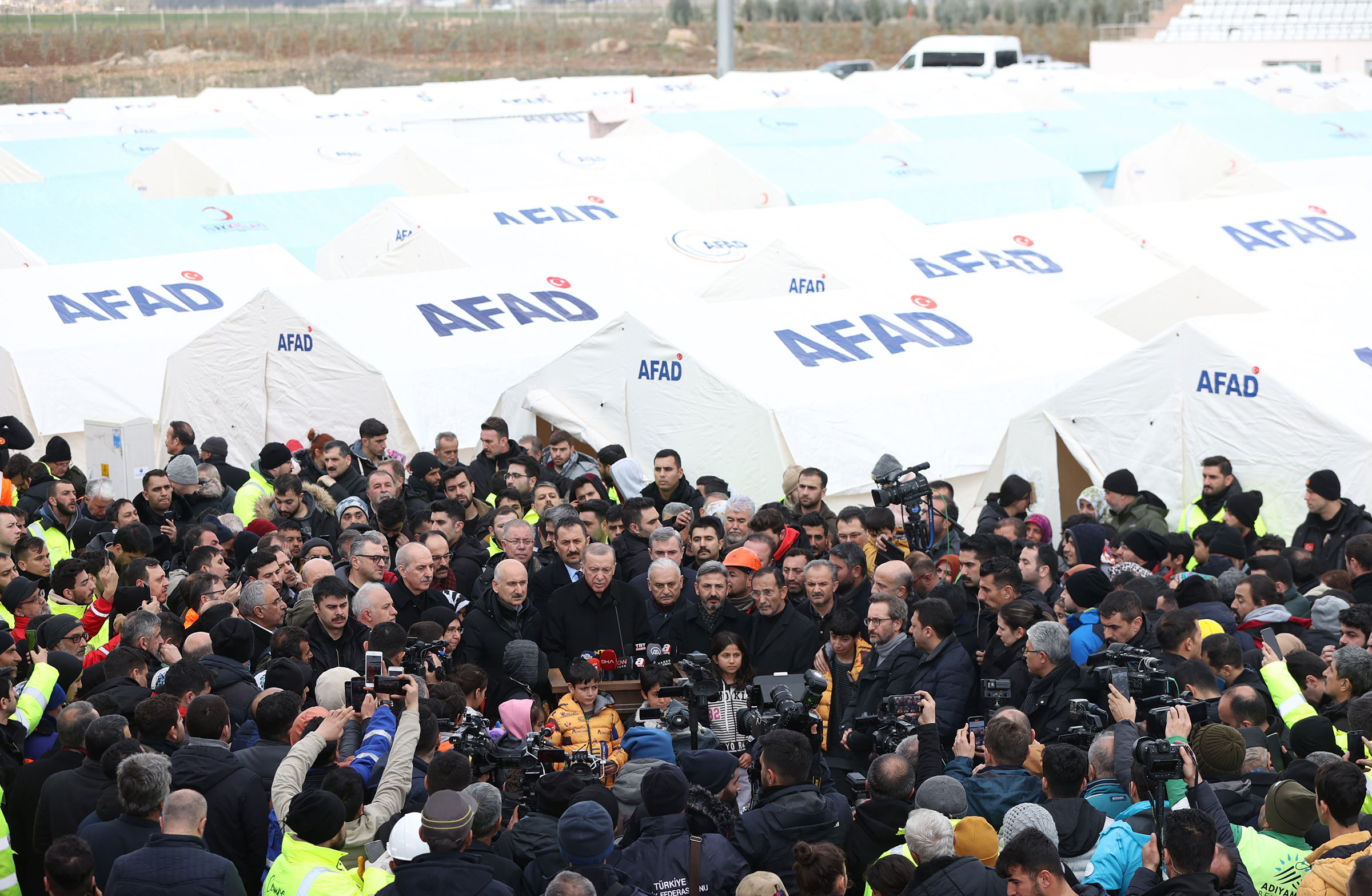
Once buildings collapse, lives depend on how quickly rescuers and machinery can arrive. The survival rate is 75% in the first 24 hours, but drops precipitously after that.
Following the 1999 earthquake, a hodgepodge of NGOs, including the Turkish Red Crescent and the mountain search and rescue group AKUT, responded in tandem with the armed forces. In the two decades since, many of those groups have been sidelined or brought under Erdoğan’s influence, and tens of thousands of military and civilian officials were purged after a 2016 coup attempt. For the latest earthquakes, all rescue efforts and humanitarian aid had to be approved by AFAD, a microcosm of the rigid top-down decision-making the President has implemented throughout the country. (AFAD declined to comment for this story.)
AFAD was established under the Prime Minister’s office in 2009 to “coordinate post-disaster response” among different organizations, echoing FEMA in name and mission. (Erdoğan was Prime Minister at the time, Turkey’s most important job, before the country switched to a presidential system in 2018 after he reached the end of his three-term limit.) But it was also a “100% AKP operation” and part of a network of faith-based aid organizations designed to boost support for Erdoğan at home and abroad, according to Hetav Rojan, a Copenhagen-based security advisor for Danish authorities and expert on the region.
Along with the Turkish Red Crescent, which is now also controlled by an Erdoğan ally, AFAD has become an instrument of the President’s foreign policy goal to be the “most generous nation” in the world (as stated on their website), administering humanitarian aid programs in more than 50 countries.
“They’ve used it to show … Turkey is helping its Islamic brothers and sisters in its sphere of influence,” Rojan says.
AFAD’s top brass, mostly AKP cronies, have been criticized for lack of experience. In January, Erdoğan named theologian İsmail Palakoğlu, who previously managed Turkey’s Directorate of Religious Affairs, or Diyanet, as head of AFAD’s disaster response department.
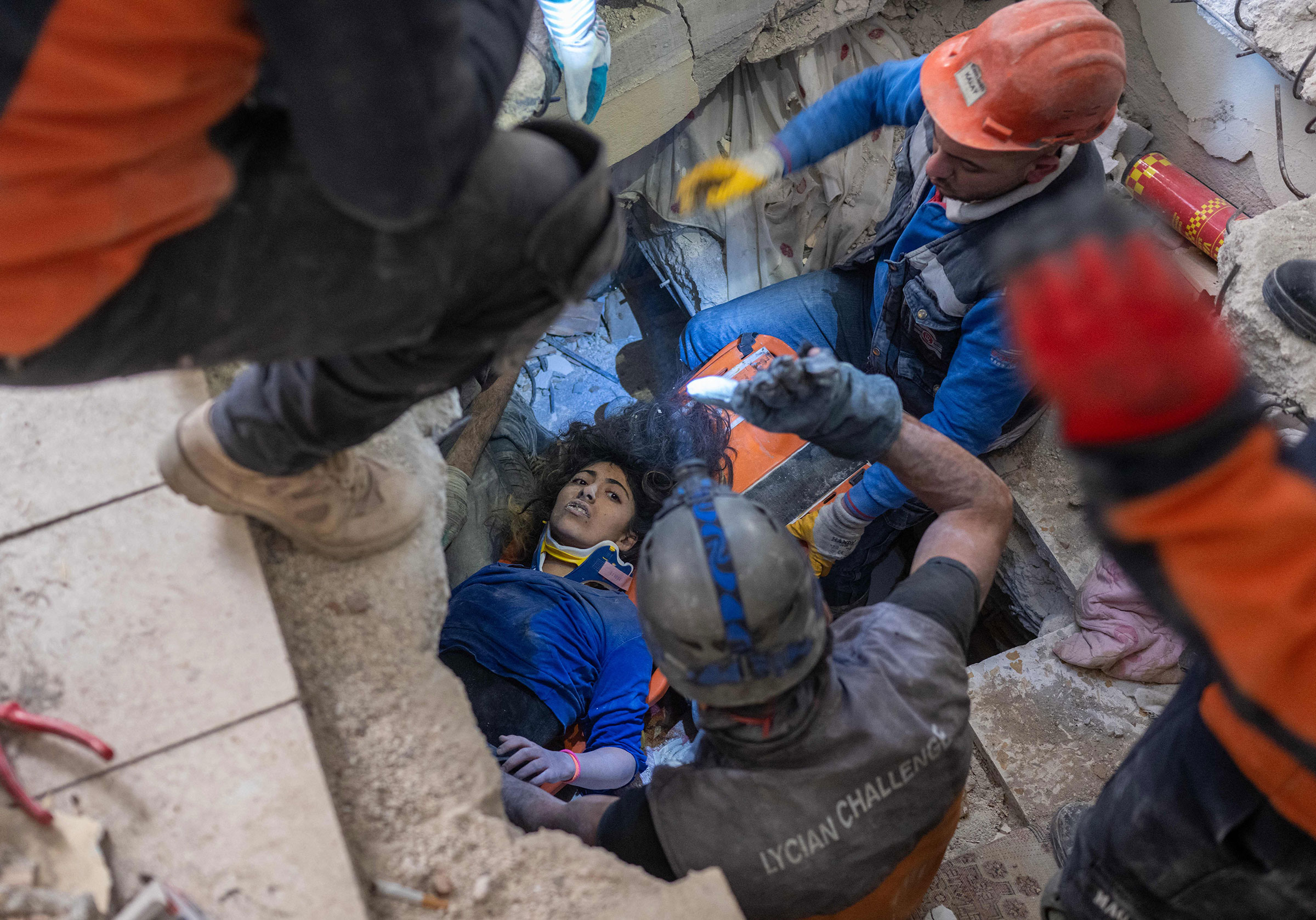
AFAD’s results have been lackluster, even by its own admission. A report after the November 2022 earthquake in the northwestern province of Düzce that injured 93 people found that “adequate coordination could not be achieved” due to a litany of problems, including a shortage of staff. Local teachers and imams had to be recruited to conduct damage assessments in place of engineers.
AFAD nonetheless had total control of the response on Feb. 6, with environmental minister Murat Kurum warning that “we will not allow any coordination other than AFAD coordination.” After the NGO Ahbap, which is led by Turkish rock star Haluk Levent, collected billions of liras from donors including Madonna for its relief work in the earthquake zone, interior minister Süleyman Soylu threatened to do “what is necessary” to those “exploiting donations and trying to compete with the state.”
The strict centralization often caused delays. One nurse told Reuters she wanted to deploy immediately, but only arrived 40 hours later because she had to wait for orders from AFAD.
“If people are afraid to take initiative, nothing is going to happen, or certainly not happen on time,” says Soli Özel, a lecturer at Istanbul’s Kadir Has University.
Read More: How Turkey Can Rebuild Better After the Earthquake
AKUT’s popular and outspoken co-founder Nasuh Mahruki, who had to resign as its head in 2016 after he was charged with “insulting” Erdoğan, says the search and rescue group wasn’t “able to save all the people we could have saved because of [AFAD’s] coordination problems.” He’s been calling for the military, which at roughly half a million strong dwarfs AFAD’s 6,000 personnel, to again take the lead on disasters.
“If you’re talking about a disaster … you have to use the greatest and strongest muscle first, which is the army,” Mahruki says.
Although defense minister Hulusi Akar said the day after the earthquakes that 7,500 troops had been deployed, veterans have said the army response in 1999 was bigger and faster. Erdoğan has rolled back much of the military’s considerable independence over the years, particularly after the failed coup attempt in 2016.

In the days after the earthquakes, many people had to dig themselves out of the rubble, according to residents of Iskenderun. The morning after the earthquake, on Feb. 7, an AFAD truck was parked in a neighborhood of aging apartment buildings that had collapsed in a “domino effect,” as one man described to TIME. A few soldiers stood ready to help. But the people extricating the bodies and carrying them out on bedsheets were local men in work gloves. When volunteer rescuers from AKUT and the Besikatas Search and Rescue Association arrived later that day, they relied on excavators and cranes brought by residents. AFAD didn’t reach the provincial capital of Hatay until the next day.
“I’m also very angry with the government because we’re all alone here, just civilians,” says Saime Özkan, whose parents were buried in the rubble. Even if victims didn’t die immediately, “they’re dead now because of how they’re handling it.”
Once again, Erdoğan’s political future hinges to a large degree on public anger over an earthquake response. He’s promised to rebuild within a year, and if he attempts to postpone the May elections by several months—through an electoral council ruling or constitutional amendment—he might have time to win voters back with lavish spending. But Kemal Kılıçdaroğlu, leader of the social democratic Republican People’s Party that was last in power in the 1990s, has said any delay would be tantamount to a “coup against democracy.”
“The basis of this mess is the one-man system,” says Meral Akşener, another prospective presidential candidate from the right-leaning Good Party.
When Berker, the volunteer rescuer, returned to Yalova, he told local AFAD officials that these “deaths are on you, too.” At home, he cannot hug his infant son enough, he says.
“The newborn babies of many people who were under the rubble lost their lives. Now every one of them is my child, too,” he says. “I want everyone who was negligent in the loss of their lives to be questioned and held accountable.”
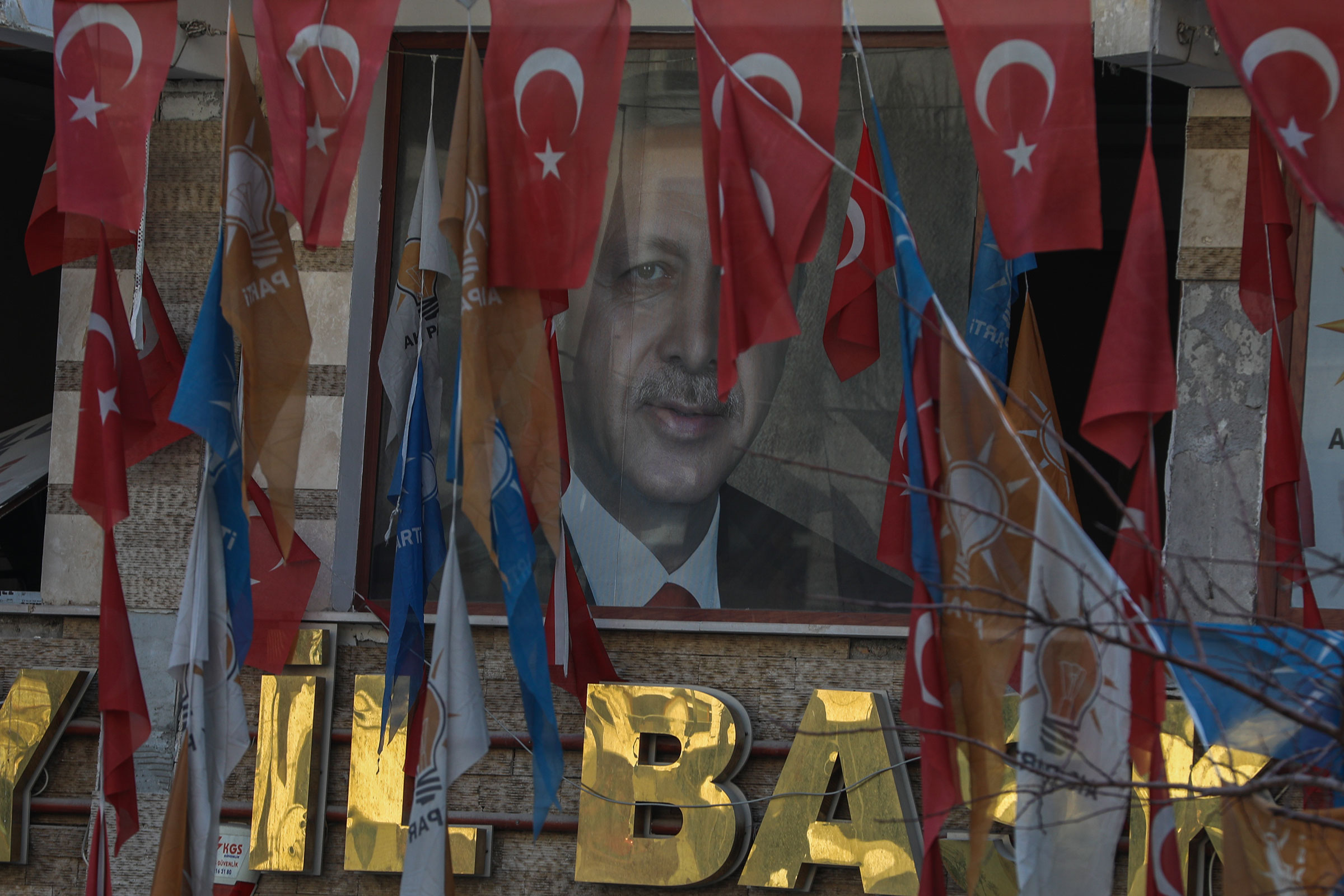
More Must-Reads From TIME
- The 100 Most Influential People of 2024
- The Revolution of Yulia Navalnaya
- 6 Compliments That Land Every Time
- What's the Deal With the Bitcoin Halving?
- If You're Dating Right Now , You're Brave: Column
- The AI That Could Heal a Divided Internet
- Fallout Is a Brilliant Model for the Future of Video Game Adaptations
- Want Weekly Recs on What to Watch, Read, and More? Sign Up for Worth Your Time
Contact us at letters@time.com